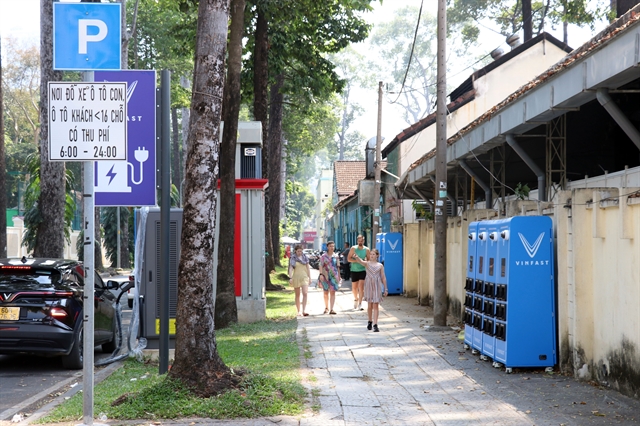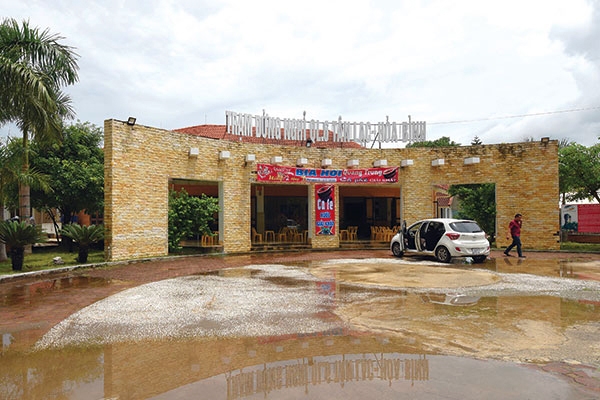 Society
Society

The Directorate for Roads of Việt Nam under the Transport Ministry is developing preferential mechanisms and incentives to better attract investors to roadside rest stop projects.
 |
| The Tân Lạc rest stop in Hòa Bình Province. The Directorate for Roads of Việt Nam under the Transport Ministry is developing preferential mechanisms and incentives to better attract investors to roadside rest stop projects.— Photo baotintuc.vn |
HÀ NỘI — The Directorate for Roads of Việt Nam under the Transport Ministry is developing preferential mechanisms and incentives to better attract investors to roadside rest stop projects.
Deputy Director of the directorate Phan Thị Thu Hiền has said that incentives might include tax exemptions for land used for public services like parking or restrooms, and reduced taxes on revenue generated from services at rest stops.
The Government would announce roadside rest stop planning, national requirements and preferential policies and allow service providers to manage their businesses by themselves, Hiền has said.
She said that under a plan by the Transport Ministry, about 120 rest stops were expected to be along national highways across the country by 2030.
So far, only ten rest stops have been built. Three were built in 2009 in the northern provinces of Bắc Giang, Hòa Bình and Ninh Bình with funds from the Japanese International Co-operation Agency (JICA)
The lack of preferential policies for investors made it difficult to attract investors, particularly private ones, she said in a report on Tin Tức (News) newspaper last weekend.
She also said that companies were hesitant to pour money into rest stop projects because of limited financial capacity and delays in land clearance causing slow-paced projects.
Vũ Đức Hoàng, vice director of Hoàng Long Transport Limited Company, said the company had almost 100 sleeper coaches that run North-South routes but it did not invest in rest stops.
“We co-operate with about 50 roadside restaurants as rest stops,” he said.
With such co-operation, the company did not need to spend money on building rest stops or pay for operation costs including salaries for staff.
“Investment in rest stops will not be productive or profitable if investors don’t receive Government incentives, at least with land lease,” he said.
Hà Ngọc Toàn, vice director of March26 Joint Stocks Company which is operating the Tân Lạc rest stop in northern Hòa Bình Province – one of the three rest stops funded by JICA - said that the rest stop only hosted a few coaches each day.
The coaches arrive but customers hardly used any of the services or purchased anything despite the stop offering resting services, local specialties and transport information.
Toàn said that the company was asking local authorities to expand its parking area so that it can host containers, sleeper coaches or build a filling station with food services.
Nguyễn Văn Thanh, chairman of Việt Nam Transport Association said that such rest stops like in Tân Lạc did not operate as effectively as expected because of unreasonable locations and modest services in both number and quality.
He said that along national highways, private restaurants were developing rapidly, bringing tougher competition to State-owned rest stops. — VNS